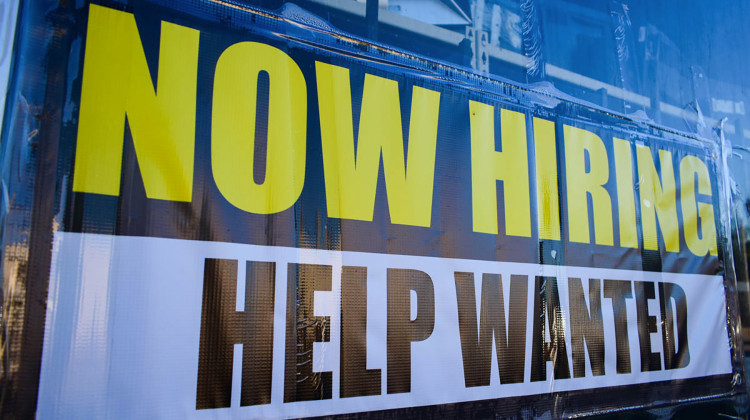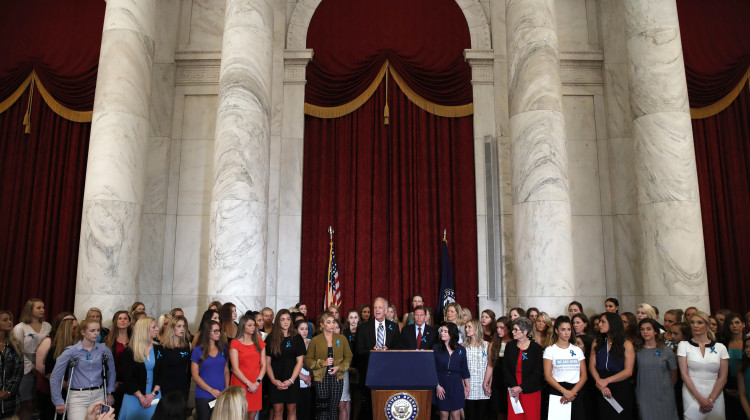By INDIANA PUBLIC MEDIA NEWS STAFF

Online retailers like Wayfair are not required to collect sales tax (Screenshot of wayfair.com)
The U.S. Supreme Court is divided on whether to allow states to tax all online sales. As NPR reports, Supreme Court Justices heard arguments on the issue Tuesday.
Justices Sonia Sotomayor, Stephen Breyer, Elena Kagan, Samuel Alito and perhaps Chief Justice John Roberts all indicated, though, that it might be best to leave status quo and court’s precedents in place and for Congress to deal with the problem of online taxation.
That’s despite every justice seeming to concede that the court had been wrong in 1967 and 1992, when it barred sellers from collecting taxes from out-of-state sales.
The Supreme Court is expected to rule on the case by late June.
The debate has been going on in Indiana for years.
State lawmakers last year passed a law that directs the state to collect sales tax from online retailers who either sell at least $100,000 worth of goods in Indiana per year or make at least 200 Indiana-based transactions per year. But the legislation is essentially unenforceable unless that 1992 Supreme Court decision is overturned.
So the state filed a lawsuit to allow it to collect sales tax from all online sellers, even ones that don’t have a presence in Indiana.
Here’s how the system currently works in the Hoosier state:
Most Online Sellers Don’t Collect Sales Tax – With A Big Exception
A 1992 U.S. Supreme Court decision says states can’t force online retailers to collect and remit sales tax if they have no physical connection to the state.
Amazon is a notable exception; the online distribution giant started collecting sales tax in the Hoosier state in 2014. A lawsuit that alleged the company had an unfair business advantage in the state ended in a settlement that prompted the collection.
But, third-party sellers do not collect sales tax, and Amazon reports about half of the sales on its website are from third-parties.
Consumers Are Supposed To Pay The Sales Tax Themselves
Customers who aren’t charged sales tax at the time of purchase are supposed to keep track of what they buy online and pay the appropriate sales tax when they file their taxes every year.
But that rarely happens because most people don’t know about that requirement – or ignore it.
It’s Not A New Fight – In Indiana Or Nationwide
Sen. Luke Kenley (R-Noblesville) authored last year’s online sales tax law. But Kenley has been fighting for this issue for years.
When Amazon started collecting sales tax in Indiana in 2014, the company was collecting the tax in few other states. In recent years, Amazon has expanded sales tax collection to all but five states, which have no statewide sales tax.
 DONATE
DONATE





 View More Programs
View More Programs


 Support WFYI. We can't do it without you.
Support WFYI. We can't do it without you.